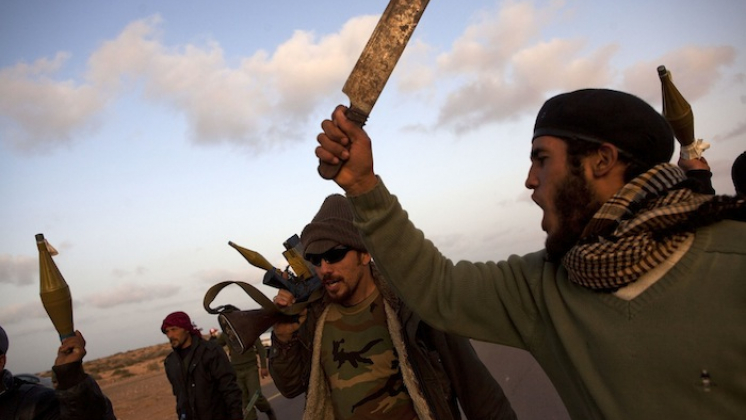The tragedy that is Libya
The end result of “regime-change” in Libya has brought nothing but bloodshed and misery to the majority of Libyans whilst giving radical Islamists another foothold on the African continent. Libya has become a failed state. Its infrastructure is in tatters and its oil exports rapidly dwindling. It has indeed undergone “regime change”. And while Libya burns, the world talks.
Two governments currently “rule” a divided Libya—maybe soon to be three different governments. One government is recognised by the international community, the other by the hard-line extremists. The plan to divide Libya into two or perhaps even three different states seems to be nearing completion.
I was never a fan of Muammar Ghaddafi or a supporter of his style of government. But, it is almost inconceivable that the plan to oust Gaddafi and his government did not appreciate or even consider the consequences of his demise. It did not require a very intelligent person to foresee what was coming. Libya rapidly went from controlled hell to uncontrolled hell.
During 2013, I was invited to address the Libyan authorities on several occasions. We were asked to assist them develop a strategy aimed at containing what was then already becoming a highly toxic situation. Matters have since deteriorated significantly into a far more complex and dangerous situation and is unlikely to get better soon—if ever.
On each visit I undertook to Libya, I tried to impress on the Libyan government (at that time) what was likely to happen in their country if no drastic intervention was considered and decisive action taken. I believed that Libya would become an uncontrolled, divided tract of land where conflict between tribes and competing terror franchises became the order of the day.
On my last visit to Libya in July 2013, I was promptly apprehended on arrival in Tripoli, my passport forcibly taken from me (I stopped protesting when a rifle was shoved into my face) and I was locked in a small room in the immigration hall. After several hours, I was finally taken to see the Chief of Intelligence (who incidentally was the person who had invited me to Libya) where he apologised for the “harsh manner” in which I was received on my arrival but claimed that a foreign government had requested they no longer speak to me. I, in turn, wasn’t too happy especially as I was supposedly a guest of the Libyan government and was there only because they had invited me to speak to them. The Chief of Intelligence also informed me that our assessment and prediction of what was coming for Libya was deemed to be “incorrect and alarmist” by Western governments they had met with. Sadly I had heard that story before.
So, it is with almost morbid fascination that I now watch the daily fumbling of foreign powers trying to contain a very cancerous situation that could have been prevented a long time ago. The “democracy” and “freedom” they promised the people of Libya has come to nought. Instead, the chaos and destruction of Libya has become a rallying point for extremists from Africa and beyond.
The negative fall-out has resulted in what I refer to as “terror-creep” as the extremists expand their areas of influence and interest across North Africa, reaching as far afield as Nigeria. Left unchecked, they will expand their influence even further into Europe and deeper into Africa.
Air strikes may degrade some of the terror forces and disrupt their logistical and other support structures—for a while. But unless the results of the air strikes are immediately exploited by well-trained and correctly equipped and led ground forces, the effects will remain negligible, unexploited, achieve only minor success and simply harden the resolve of those who thrive on terror and misery.
Sometimes I recall the GOC of the Indonesian Special Forces commenting to me many years ago that the West will one day learn that you cannot negotiate with terrorists over a cup of tea.
If the current “peace talks” fail, then perhaps it is time to put the tea away and start doing something other than talking


